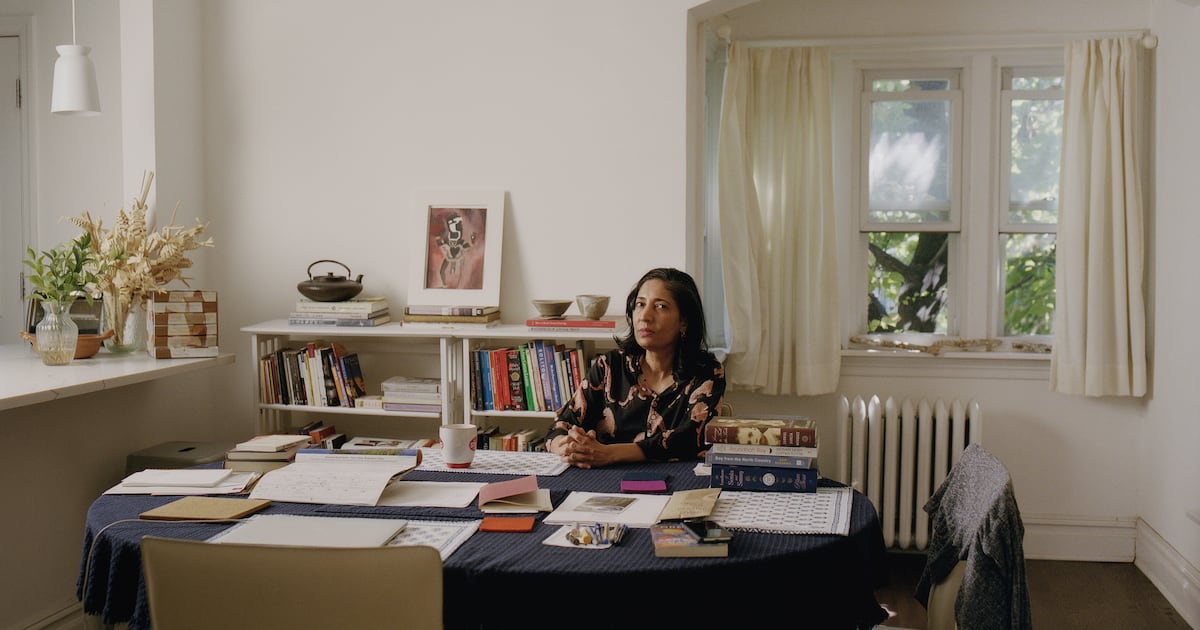The Loneliness of Sonia and Sunny
Author: Kiran Desai
ISBN-13: 9780241770825
Publisher: Penguin
Guideline Price: £25

Read more on post.
When Kiran Desai first conceived The Loneliness of Sonia and Sunny, she couldn’t have anticipated how completely it would take over her life. What began as an idea for “an Indian love story in the modern world” grew over two decades into a 700-page epic.
The long solitude of her process, supported by the steady counsel of her mother, the novelist Anita Desai, resulted in a novel of stunning scope and ambition. “After all these years, I feel she’s found her own full voice as a writer,” said Salman Rushdie, who has known Desai since childhood. “It’s been a very hard book for her to write, and I hope it doesn’t take her another 20 years to write the next book.”
What Desai has produced is both expansive and intimate: a love story that unfolds across generations and continents, following the intertwined fates of two Indian families. To put it too simply, it is the parallel tale of Sonia and Sunny, both born into comfortable Delhi households but now adrift in New York, each grappling with their place in a city that both promises and withholds belonging.
Sonia arrives determined to become a writer but is trapped in the orbit of an older, much more famous artist whose charisma is matched only by his tyranny and self-absorption. The relationship is consuming, destructive and secret, hidden from her family back home. Sunny, meanwhile, is trying to make his way as a journalist. He lives in a fashionable Brooklyn neighbourhood with Ulla, his stylish Swedish-American girlfriend, whom he also keeps hidden from his parents.
At the heart of their struggle is the problem of writing about home without pandering to a Western audience. Sonia worries that to write magical realist fables would be to offer cliches, “orientalist nonsense”, as her lover unkindly puts it. Sunny, too, finds himself squeezed between the India he knows and the India others want to hear about. Their predicaments are not just professional; they seep into love, friendship, the capacity for intimacy.
Halfway through the novel, their parallel paths meet. What follows is an unfurling of love, shot through with the accidents, misunderstandings and social pressures that conspire to keep two people apart. In less skilled hands, this convergence and symmetry might feel schematic, but Desai’s great gift is texture. Her writing gives even minor characters a sense of history and gravity. Her people never feel invented; they seem observed. At each turn of the plot there’s a precise, penetrating sentence: “After you’ve cheated someone, you have no option but to turn that person into an ogre so as to justify your own misdeeds,” the omniscient narrative voice notes.
Desai’s method feels strikingly traditional, even deliberately 19th century. The novel once aspired to be the grand moral instrument of its age, representing society in its fullness and cultivating empathy across its divisions, and The Loneliness of Sonia and Sunny seems animated by that same faith. The author moves from the crowded interiority of her protagonists to the marginal figures on the periphery, granting everyone, whether cook, aunt or fleeting stranger, a distinct way of being and speaking.
There’s a capaciousness, a sense that the private dilemmas of two young Indians in New York refract global histories. At a time of distracted, fractured reading, Desai returns to the novel’s oldest and still most radical ambition: to make the complexity of other human lives shareable.
Her prose is luxurious and sensual; each item of food and shift in the quality of light is noted with such tenderness that it becomes something life affirming. In the book’s final pages, one line seems to catch the spiritual thrust: “The universe tries everything it can to prevent love. If one thing doesn’t work to keep two people apart, it tries another. Darkness follows darkness, across geographies, across centuries.”
The obstacles in Sonia and Sunny’s path, and in the path of all lovers, aren’t just personal. It’s the age-old battle of good against evil. Yet the remarkable and refreshing thing about this novel is how insistently hopeful it remains. The book is not so interested in darkness; its focus is on the possibility of light breaking through, the chance of connection even amid fracture and displacement.
The Loneliness of Sonia and Sunny is as much about writing as it is about love. Its protagonists struggle to tell the stories of their lives in ways that feel true, uncorrupted by expectation. Desai, after two decades of labour, has done just that. The result is a novel of tremendous scope and emotional richness: absorbing, poignant, frequently funny and, above all, deeply humane.